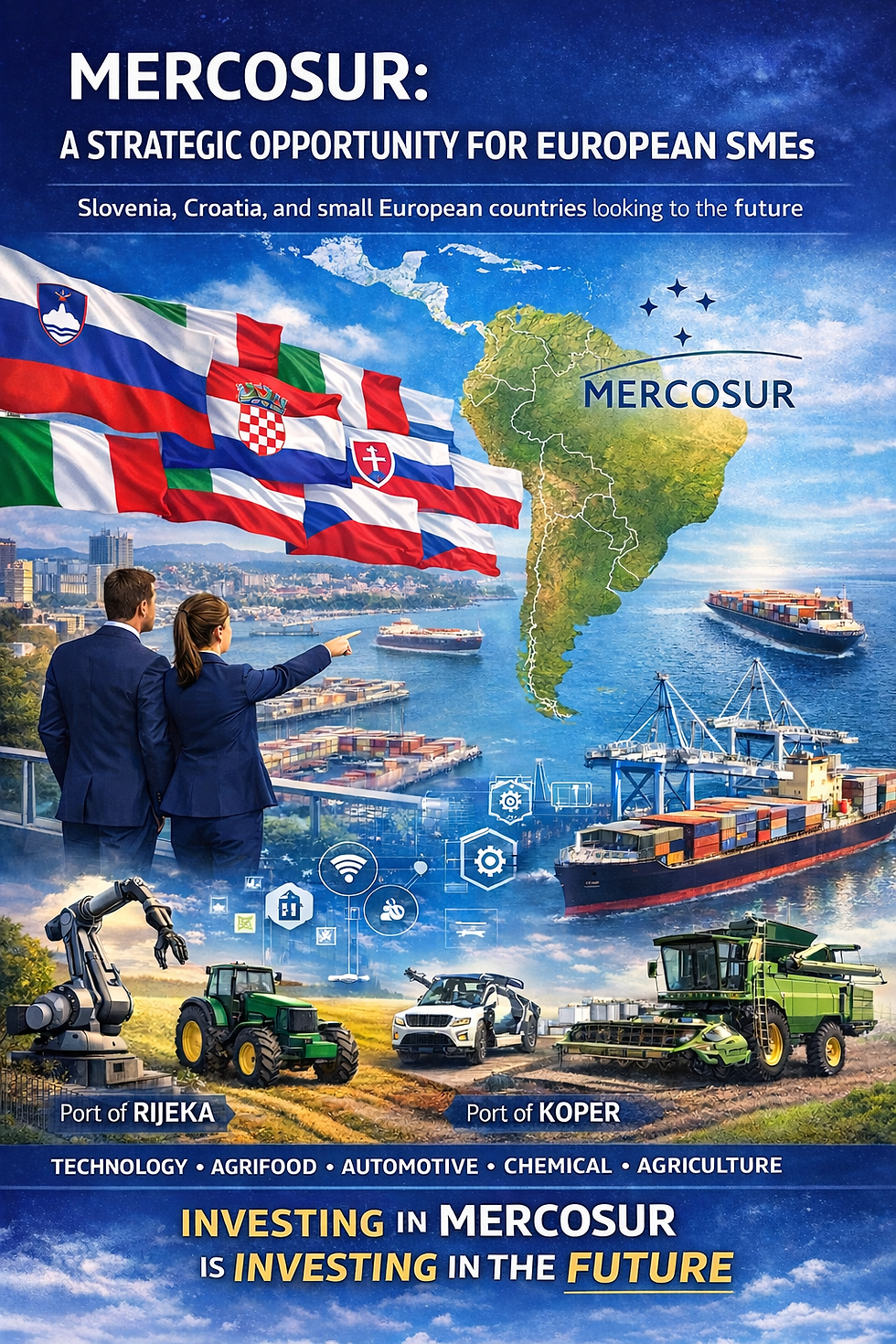European Union - Mercosur: A Strategic Agreement with Implementation Challenges, New steps.
- info0961547
- Dec 6, 2024
- 2 min read
Updated: Jan 1, 2025

Foto: President EU, Ursula von der Leyen in Montevideo, Uruguay.
On December 6, 2024, the European Union (EU) and the Mercosur countries—Argentina, Brazil, Paraguay, and Uruguay—reached a new political agreement for a groundbreaking partnership. This deal aims to not only strengthen economic ties between the two blocs but also to promote shared values such as sustainable development and environmental protection.
What Does the Agreement Entail?
The EU is Mercosur's leading trade and investment partner:
Exports: In 2023, the EU exported goods worth €56 billion and services worth €28 billion to Mercosur countries.
Investments: The EU is Mercosur's largest foreign investor, with an accumulated stock of €340 billion in 2021.
The agreement aims to:
Boost bilateral trade and investment: By reducing tariffs and non-tariff barriers, particularly benefiting small and medium-sized enterprises (SMEs).
Establish stable and predictable rules: With stronger standards for intellectual property rights (including geographical indications), food safety, competition, and regulatory practices.
Promote shared values: Enhancing workers' rights, combating climate change, encouraging corporate responsibility, and maintaining high food safety standards.
This agreement represents a win-win opportunity for both regions, fostering economic growth, job creation, and sustainable development. For more information, visit the European Commission's official page on the EU-Mercosur Agreement.

Challenges to Ratification
Despite its economic and political significance, the agreement faces a challenging ratification process, particularly in Europe:
Complex legislative process:
In Mercosur, parliamentary approval is required in each member country.
In the EU, the deal must be approved by the Council of Ministers, the European Parliament, all 27 national parliaments, and six regional parliaments in Belgium.
Political opposition:
France leads the resistance, supported by Belgium, Austria, and Ireland, citing environmental concerns and risks to their agricultural sectors.
Italy, a key vote, remains undecided, which could tip the scales either way.
Electoral impact:
With crucial elections in Germany, Poland, and potentially France in 2024, the agreement may become a divisive issue, complicating its timeline for approval.
Benefits of the Agreement
If ratified, the EU-Mercosur Agreement promises:
Annual tariff savings of €4 billion for European businesses, particularly in the automotive, pharmaceutical, and machinery sectors.
Greater access for Mercosur agricultural products to European markets.
Strengthened cooperation on sustainability and labor rights.
Conclusion
The EU-Mercosur Agreement is a landmark in international economic relations, offering significant benefits for both regions. However, the complexity of the ratification process and political opposition in some European countries could delay its implementation.
For further details and updates on the agreement, visit the official EU-Mercosur Agreement webpage.
Author: Econ. José Miguel Estigarribia Villasanti



Comments